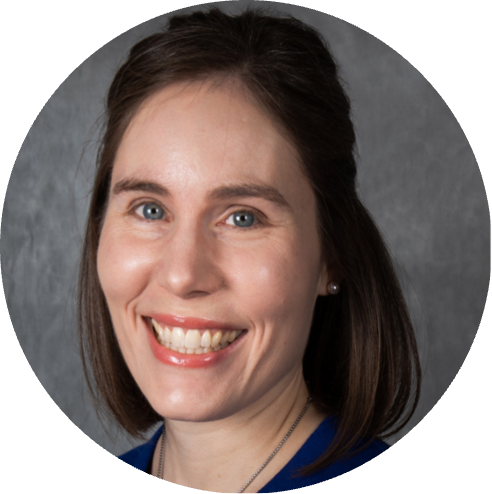MIRECC / CoE
Newsletter | Spring 2025 Article 2 | South Central MIRECC
Meet a SC MIRECC Researcher: Alexandra (Ali) Caloudas, PhD

Q. Please tell us a bit about your educational and career background.
I am a licensed psychologist with a PhD in counseling psychology. My clinical training emphasized providing evidence-based treatment for PTSD and other trauma-related concerns as well as female health. I spent time working in private practice and teaching in a psychology department prior to joining VA in 2019. I completed the Health Professions Education, Evaluation, and Research (HPEER) fellowship in 2022. Since joining VA, I have led or contributed to research aimed at improving rural Veterans’ access to mental health care and served as the director of the HPEER fellowship at the Houston site.
Q. What do you like about doing research with Veterans?
Veterans have served and sacrificed for our country, and it is wonderful to have a mission that centers on improving their care, health, and well-being. Several of my family members served in the military, and it’s important to me that Veterans receive the high-quality care that they deserve. It has been a joy to work with Veterans, who have displayed a kind willingness to contribute to research studies because they care about their fellow Veterans and want to give back.
Q. Do you have any ongoing or upcoming projects that you want to highlight?
I lead a Rural Health Career Development Award called “Leveraging Virtual Care and Clinical Partnerships to Engage Rural Veterans in Mental Health Care,” funded by the VA Office of Rural Health. This project ultimately aims to partner with rural VA and community clinics to increase rural Veterans’ access to and engagement with VA mental health care and other related services (i.e., Whole Health programming), with emphasis on using virtual care to address barriers and increase access to care.
Q. Who are the people who have played important roles in your professional development that you would like to mention?
Drs. Jan Lindsay and Kyler Godwin are incredible leaders and scientists, and I am very fortunate to have them as mentors. I would not be doing the work I love so much without them because they provided me with the exact training and experiences that I needed to grow as a researcher and educator. They were my primary mentors during postdoctoral fellowship, and they continue to support me during my CDA.
Q. How has your SC MIRECC affiliation helped grow your research career?
I am thrilled to be part of SC MIRECC, and it has provided me with a wealth of experiences that have helped me grow my research career. As a fellow, I successfully received a SC MIRECC research pilot grant, which helped me launch my independent research career. It really helped me grow as a researcher and undoubtedly made me more competitive for my Career Development Award. Also, I participated in the SC MIRECC Grant Writing Scholars program, which was a fantastic opportunity to grow my grant writing skills. Finally, the opportunities for training and education in SC MIRECC are plentiful, and the many Grand Rounds talks and educational products have been an asset.
Q. What would your dream research study be if funding weren’t an issue?
I would want to lead projects that involve direct partnership with Veterans to co-design innovative strategies for engaging rural Veterans in mental health care. I am especially passionate about designing materials and programs (apps, web-based programs, for example) that offer Veterans unique opportunities to improve mental health and well-being that either stand alone or support/augment mental health treatment. For example, I worked with other SC MIRECC investigators, rural health researchers, Native Veterans, and the National Center for PTSD’s Mobile Apps Team to co-develop a mobile app called Veterans Wellness Path. I believe that mental health support should be widely accessible, and educational materials and virtual programs can expand access.
Q. How can people get in touch with you if they have questions?
I am always happy to connect and explore potential collaborations! I can be reached at alexandra.caloudas@va.gov.
Last updated: April 24, 2025
In this Issue
— SC MIRECC Welcomes New Leaders
— Meet a SC MIRECC Researcher
— Free CE: CBOC MH Rounds Archive in TMS
— Anchor Site Highlights
— Featured Clinical Education Resources
— Publication Highlights
— Pilot Grant Opportunity
— MIDAS Consultation Program
SC MIRECC Menu
Home
About
Leadership & Staff
Anchor Sites
Research
Research Training
Houston Fellowship
Little Rock Fellowship
Fellows
Grant Writing Scholars
Education
CBOC Grand Rounds
Grant Program
Education Products
New and Featured
Products by Topic
Order
Clinical Care
Newsletter
News Flash
PACERS
Veteran Engagement and Access
Older Veterans
Women Veterans
Veterans and Families



















